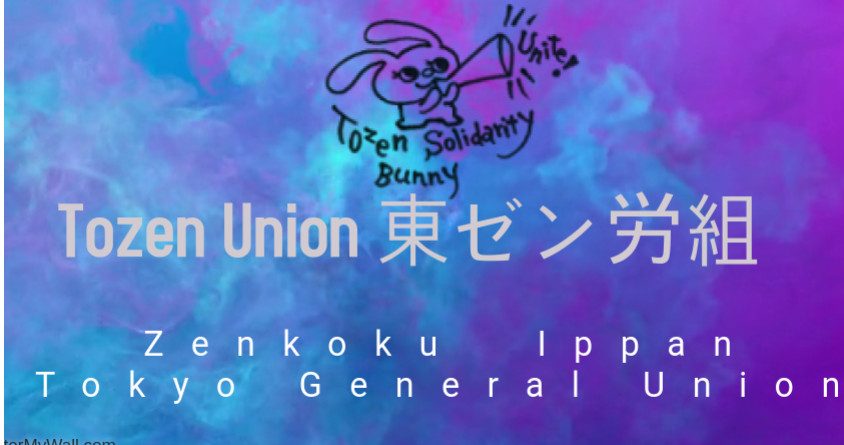On Nov. 30, 2018, the Executive Editorial Committee at The Japan Times published an Editor’s Note announcing changes in the way the newspaper would describe both the so-called comfort women and wartime forced laborers recruited before and during World War II to work for Japanese companies.
Under the former style, the comfort women were described as “women who were forced to provide sex for Japanese troops before and during World War II.” Under the new style, they were to be referred to as “women who worked in wartime brothels, including those who did so against their will, to provide sex to Japanese soldiers.”
In addition, the note said that those who were previously described as “forced laborers” would now be referred to as “wartime laborers.” The Executive Editorial Committee attempted to justify both these changes with the reasoning that the recruitment and experiences of members of these groups “varied.”
Tozen Union and its Japan Times General Workers Union chapter strongly oppose these editorial changes. Both changes were pushed through with total disregard for the input of knowledgeable writers and editors, with zero advance notice, and the changes also show a disturbing disregard for the mainstream historical record.
As a result, The Japan Times is now perceived publicly as trying to downplay the suffering of the comfort women and forced laborers; of putting political considerations above fair, balanced and truthful reporting; and of toeing the Japanese government’s line for commercial gain.
The changes have harmed The Japan Times in terms of its reputation, and this has had a direct effect on JTGWU members’ working conditions, affecting everything from morale to working hours and stress levels. The impact of the new editorial stance on perceptions of the paper’s integrity, as well as that of those who work there, has resulted in difficulties for staff writers and editors working with sources on stories, and in commissioning stories from outside contributors.
In collective bargaining, the JTGWU and Tozen have demanded a full retraction of the editorial policy changes as well as prior consultation on future changes of this magnitude.
The union has proposed that 1) The Japan Times apologizes for the Editor’s Note and reverts to the previous style on comfort women and wartime forced laborers; 2) that the JTGWU has representation on both committees involved in drafting such style changes in future; and 3) that the union be given one month’s notice for consultation before such changes are implemented in future, including the right to delay changes if the union feels they haven’t been properly discussed. The company has yet to agree to any of these proposals.
Taking these steps is vital to protect staff, their professional standing and the conditions under which they work, as well as the integrity of The Japan Times and the survival of the distinctive and important journalism it practices in an environment where press freedom is under threat.

